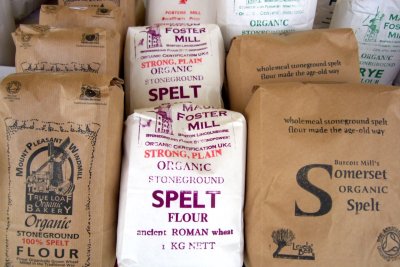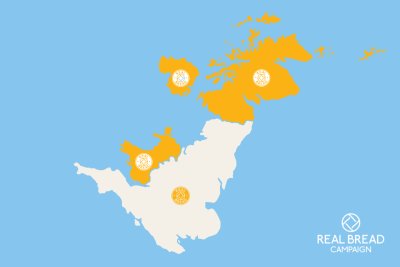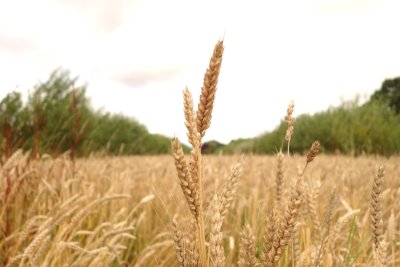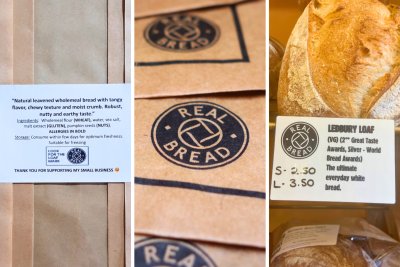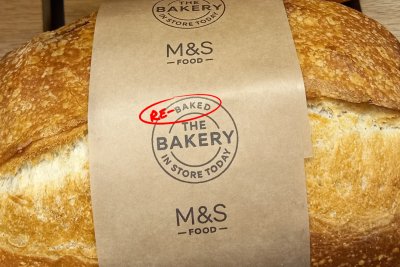 The foaming agent is also used in some industrial baking in the USA. Credit: Canva
The foaming agent is also used in some industrial baking in the USA. Credit: Canva
Prompted by the Real Bread Campaign's work, on 9 January 2023, Baroness Bennett of Manor Castle submitted this written parliamentary question:
"To ask His Majesty's Government whether they plan to ensure that the Retained EU Law (Reform and Revocation) Bill will not result in people in the UK being exposed to azodicarbonimide, potassium bromate, or any other flour bleaching agents or industrial bread additives banned across the EU."
The issue
As highlighted by Real Bread Campaign supporter Gerry Danby on his Artisan Food Law website, ‘decades of carefully developed food law [are] set to be dropped with little regard for the consequences’.
A Cabinet Office/BEIS Impact Assessment outlines that The Retained EU Law (Revocation and Reform) Bill currently before Parliament: “will provide for a ‘sunset’ for retained EU legislation (REUL) on 31 December 2023 and includes measures that will enable HM Government to more easily amend, repeal and replace REUL and to ‘assimilate’ REUL into the UK statute books.”
Real Bread Campaign coordinator Chris Young said: “Our worry is that the government is gearing up to declare open season on protections that the Real Bread Campaign, along with many other people and organisations over the decades, have fought hard to secure, preserve and improve.”
Young expressed concern that regulatory repeal and relaxation could lead to baked products being imported or made in the UK using azodicarbonimide (AKA ‘the yoga mat chemical’), potassium bromate or other flour bleaching agents and industrial food additives currently banned to protect people from potential health risks.
Hidden additives
The Campaign believes that in order to have the chance to make better-informed food choices, everyone has the right to know what has been used to make their food. It is concerned that labelling laws in support of this could now be eroded.
For example, for decades manufacturers and successive governments resisted calls for declaration on ingredient lists of the four so-called fortificants added to most flour in the UK. This only became mandatory in 2014 thanks to an EU regulation.
Young commented: "The Real Bread Campaign still questions the assertion that involuntary mass medication of the nation is the best way to improve our diets and we certainly do not want to see a return to this being done by stealth."
What might be lost?
Regulations listed in the REUL Explorer database include:
- Food Information Regulations 2014. A key piece of legislation that enshrines (albeit with significant loopholes) your right to know where and how food was made and with what. It was only at this point that retailers and manufacturers in the UK had to list the so-called fortificants that had been added to flour for decades.
- The Food Information (Amendment) Regulations 2019. Also known as Natasha's Law, this is what at last forced reluctant manufacturers and retailers to put full ingredients lists onto food prepacked for direct sale.
- Regulation (EC) No. 1333/2008 on food additives. Lists the additives that are permitted in food, as well as the principles behind the addition of further additives to the list.
- Regulation (EC) No. 1332/2008 on food enzymes. Governs so-called processing aids (additives that are permitted in food but do not have to be declared on labels) as well as the principles and process behind the addition of further additives to the list.
Opportunities
The flipside to any regulatory review is that it would (or at least should) present the opportunity to update and improve rules in order to raise UK standards.
In addition to the regulations listed above, others in the database that could be improved for the benefit of farmers, bakers and bread buyers include:
- The Seeds Marketing Regulations 2011
- The Seeds (National List of Varieties) Regulations 2015
- Regulation (EC) No 396/2005 on maximum residue levels (MRLs) of pesticides in or on food and feed...
- A range of instruments relating to genetically modified organisms
Regulations affecting bakers
In December, the Real Bread Campaign asked the Bakers and Allied Food Workers Union and the Craft Bakers Association if either organisation is doing work on REUL (eg employment law) that could affect bakery owners and workers. The BFAWU said they are open to explore working together on these issues. The CBA has not replied.
Background
European Union laws that applied in the UK immediately before we left the EU were retained in an attempt to prevent legislative chaos. Collectively, this body of more than 2400 pieces of legislation is known as ‘retained EU law’ (REUL). The department with by far the most (570) pieces of REUL is Defra, with a number of other food-related regulations falling within the remit of other departments.
Updates
24 January 2023: Lord Benyon responded to Baroness Bennett's question.
16 January 2023: We emailed the trade bodies Craft Bakers Association, Federation of Bakers, Scottish Bakers and UK Flour Millers, highlighting the risk of this potential erosion of consumer protection and asking if they'd be against such retrograde steps.
See also
Real Bread Campaign: The Real Bread Campaign finds and shares ways to make bread better for us, better for our communities and better for the planet. Whether your interest is local food, community-focussed small enterprises, honest labelling, therapeutic baking, or simply tasty toast, everyone is invited to become a Campaign supporter.
Sustain
The Green House
244-254 Cambridge Heath Road
London E2 9DA
020 3559 6777
sustain@sustainweb.org
Sustain advocates food and agriculture policies and practices that enhance the health and welfare of people and animals, improve the working and living environment, promote equity and enrich society and culture.
© Sustain 2024
Registered charity (no. 1018643)
Data privacy & cookies

